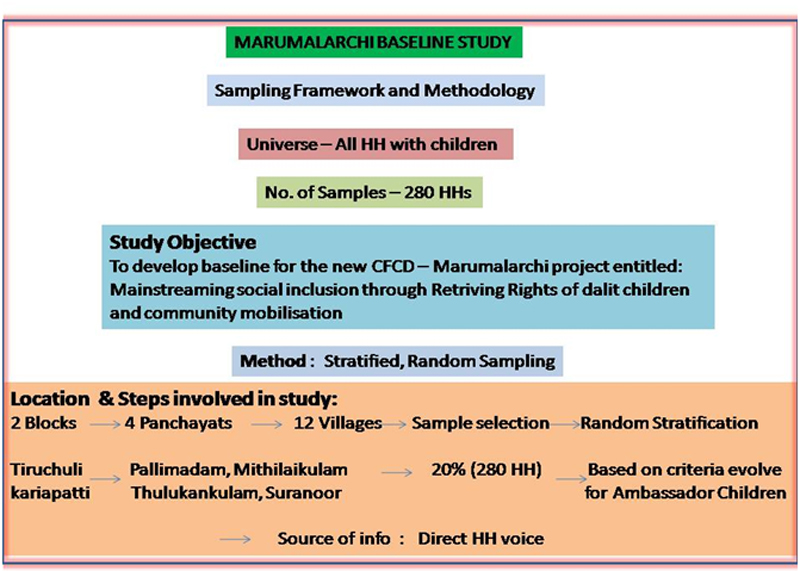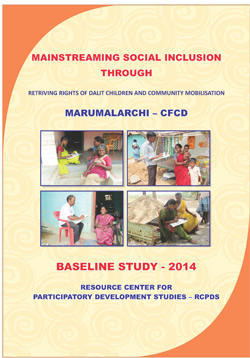Baseline study
The project envisages a rigorous impact assessment study to measure the outcomes and impact created by the project as well as attribution to project intervention. In general the study used longitudinal method with a combination of before and after as with and without intervention of the child rights scenario to better understands the impact. The questionnaire by its design provide scope for internal and external factors such as government mainstream policies, service delivery, accessibility and existence of institutional arrangement
The focus of this Baseline study was to understand the baseline situation and develop benchmark on key performance indicators so that the achievements made by the project could be measured. Hence, the study used quantitative methods for data collection. The logical framework of the project provides the base for result and impact indicators which need to be measured both at the baseline and end line. Based on the log-frame indicators, an information procurement plan (IPP) was developed, shared during baseline study inception meeting and finalized. RCPDS designed the overall sampling scheme and conducted the baseline survey before the start of project implementation. Well trained volunteers, senior members of CMCJ (Panchavarnam, Amutha, Jone) and RCPDS field teams (staff from childline, SPEECH projects) were recruited; oriented and used in data collection. Data entry and analysis was done in SPSS.

|


